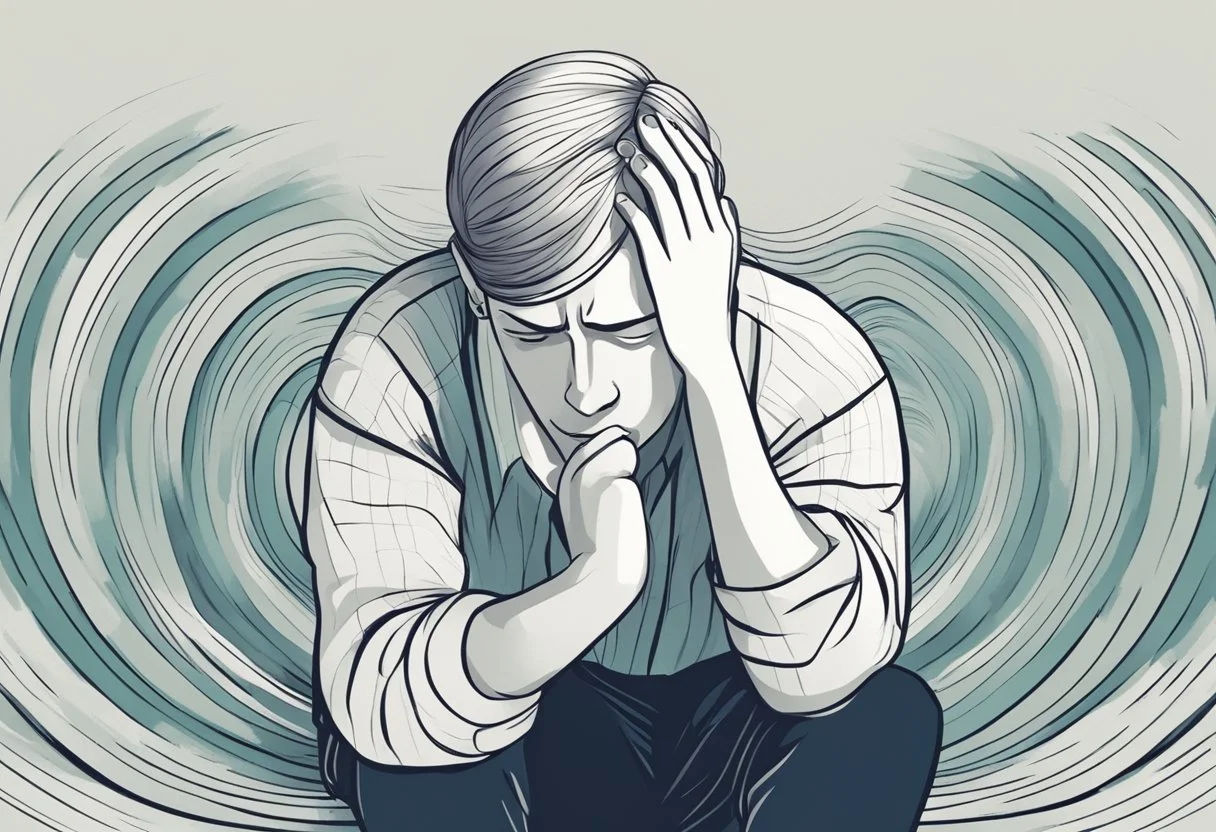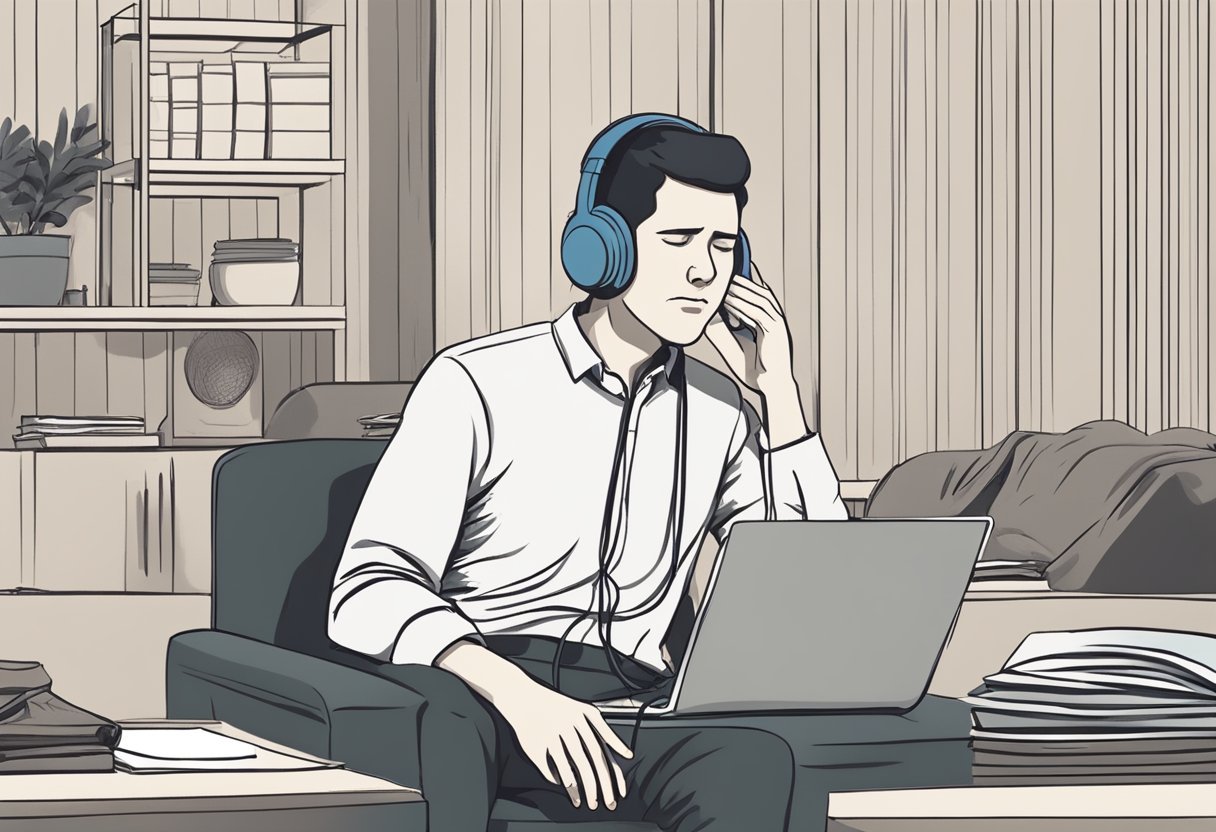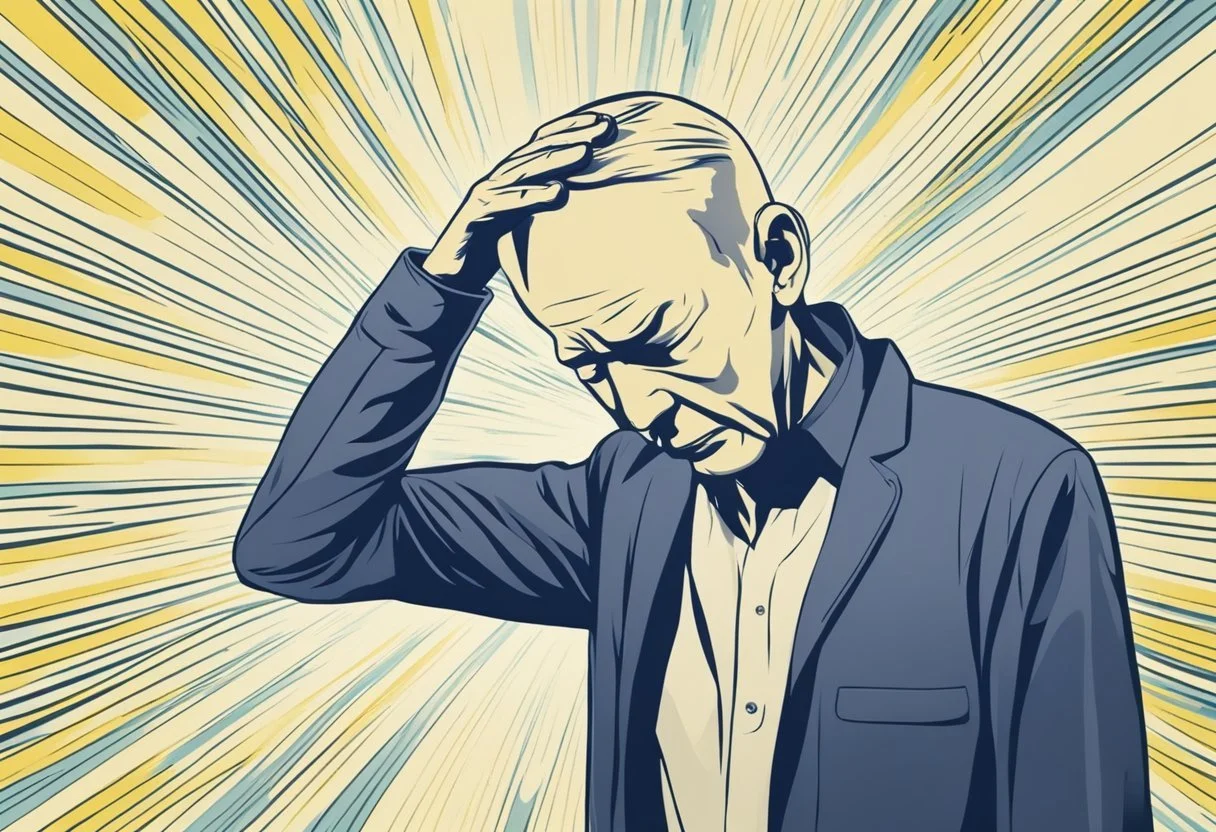Tinnitus
Symptoms, Causes, and Home Remedies
Discover > Health Conditions > Tinnitus
Ringing in the ears, commonly known as tinnitus, is a widespread condition that affects millions of people worldwide. Tinnitus is characterized by a persistent or intermittent noise in one or both ears, which can range from a slight ringing or buzzing sound to a more pronounced and disruptive noise. This condition can significantly impact an individual's quality of life, making it crucial to understand its symptoms, causes, and potential home remedies.
Various factors can contribute to the development of tinnitus, including exposure to loud noises, ear infections, and age-related hearing loss. Moreover, certain medications and underlying health problems can also cause or exacerbate this condition. Identifying the root cause of tinnitus is essential in tailoring an effective treatment plan that may help alleviate the ringing or buzzing sounds experienced by those affected.
While there is currently no definitive cure for tinnitus, several home remedies have shown promising results in reducing its severity or providing temporary relief. These remedies often involve lifestyle changes, such as stress management techniques and noise exposure reduction. By exploring these approaches, individuals suffering from ringing in the ears may discover ways to improve their daily lives and minimize the effects of this challenging condition.
Understanding Tinnitus
What Is Tinnitus?
Tinnitus is a medical condition characterized by a ringing, hissing, buzzing, roaring, or humming sound in one or both ears that is not caused by an external sound source. It can be a persistent or intermittent sensation, with varying levels of intensity. Tinnitus is classified into two main types: subjective tinnitus and objective tinnitus.
Subjective tinnitus is the most common type, where the individual experiences the sensation of sound without any external source. It is believed to result from issues within the auditory system, such as damaged hair cells in the inner ear or problems with the pathways between the ear and brain. Objective tinnitus is a rarer form, in which an examiner can also hear the sound when examining the individual's ear. It is usually caused by issues such as abnormal blood flow or muscle contractions.
Types of Tinnitus
Tinnitus can manifest itself in several forms, depending on the underlying cause and the part of the auditory system involved. The most common types include:
Tonality: The perception of a continuous sound at a specific frequency, such as a high-pitched ringing or a low-pitched humming.
Pulsatile: The sensation of hearing a rhythmic sound that pulses in time with the individual's heartbeat.
Musical: The perception of hearing music or singing, although the actual melodies and tunes may vary.
Prevalence and Impact
Tinnitus affects a significant portion of the population, with estimates suggesting that approximately 15-20% of people experience it at some point in their lives. While it is more common in older adults, tinnitus can affect individuals of any age. The impact of tinnitus can vary greatly between individuals, with some experiencing only mild annoyance, while others suffer from significant distress and a reduced quality of life.
Tinnitus can also be associated with various medical conditions or factors, including:
Hearing loss, either age-related or due to noise exposure.
Ear infections or blockages.
Certain medications, such as aspirin or antibiotics.
Head or neck injuries.
Exposure to loud noises, such as concerts or industrial machinery.
In many cases, determining the precise cause of tinnitus can be challenging, but understanding the condition and its symptoms can be critical to managing it effectively. A combination of medical intervention and home remedies can help reduce the impact of tinnitus, enabling those affected to continue living a fulfilling life.
Symptoms of Tinnitus
Common Symptoms
Tinnitus, often referred to as ringing in the ears, can manifest in various ways. The most common symptom is hearing a consistent noise that is not present in the environment. This noise can be experienced as ringing, hissing, buzzing, or a loud whistling sound. The severity of the sound can vary from person to person and may be constant or intermittent. Tinnitus is often more noticeable during periods of silence or when trying to sleep.
Associated Symptoms
While ringing in the ears is the primary symptom of tinnitus, several other symptoms can be associated with the condition, including:
Age-related hearing loss: Tinnitus is more common in older adults, typically occurring in people over 60 years old.
Difficulty concentrating: The constant noise in the ear can make focusing on tasks more challenging.
Stress and anxiety: The persistent and intrusive nature of tinnitus can lead to feelings of stress and anxiety.
Depression: In some cases, the emotional impact of tinnitus can contribute to feelings of depression.
Hypersensitivity to sound: Individuals with tinnitus may become more sensitive to certain sounds in their environment.
Effects on Quality of Life
Tinnitus can significantly impact a person's quality of life. The constant noise may interfere with their ability to sleep, concentrate, or enjoy quiet moments. Additionally, the emotional strain caused by tinnitus can exacerbate stress, anxiety, and depression. Managing tinnitus effectively is crucial to maintaining good mental health and overall well-being.
Causes and Risk Factors
Common Causes
There are several common causes of ringing in the ears, also known as tinnitus. These include loud noises, such as exposure to the continuous noise at concerts, heavy machinery, or gunfire. Sudden loud noises can cause temporary tinnitus, whereas continued exposure can result in permanent damage. Earwax blockage can also lead to the problem by preventing proper sound conduction. Infections of the middle ear, otosclerosis, and Meniere's disease are other causes related to the structure of the ear. Problems with the temporomandibular joint (TMJ) and certain tumors can also contribute to ringing in the ears.
Some risk factors include:
Frequent exposure to loud noises
Earwax buildup
Age-related hearing loss
Certain ear-related disorders (e.g., Meniere's disease)
Age-Related Factors
As people age, their risk for developing tinnitus increases. Presbycusis, or age-related hearing loss, is a common result of the natural aging process. It typically begins around the age of 60, and causes a decline in the ability to hear high-frequency sounds. This kind of hearing loss, as well as the decline in overall hearing ability, is a risk factor for experiencing ringing in the ears.
Environmental Exposure
A person's environment plays a significant role in the development of tinnitus. Loud noise exposure is one of the leading causes. The loudness and duration of noise exposure directly impact the risk of developing ringing in the ears. Some common sources of loud noise include:
Concerts and music festivals
Firearms and explosions
Construction sites and heavy machinery
Motorcycles and loud engines
In addition to noise, certain health and lifestyle factors can contribute to tinnitus. Diseases and conditions affecting the blood vessels, such as high blood pressure and other vascular disorders, can cause pulsatile tinnitus, a specific type of ringing in the ears synchronized with the heartbeat.
Diagnosing Tinnitus
Medical Evaluation
A thorough evaluation by a doctor or an audiologist is crucial in diagnosing tinnitus. During the medical evaluation, the healthcare professional will gather the patient's medical history, including any past hearing problems, ear infections, or medications they may be taking that could contribute to the condition. The doctor may also perform a physical examination of the ears and head to check for any underlying issues that could cause tinnitus.
Hearing Tests
To assess the patient's hearing ability, hearing tests are conducted. These tests involve the use of sounds at varying frequencies and intensities to determine the patient's hearing threshold. The audiologist will typically perform an audiogram, which is a graphical representation of the hearing test results. It will help identify any hearing loss that may be contributing to the tinnitus.
Some of the hearing tests include:
Pure-tone audiometry
Speech audiometry
Tympanometry
Advanced Diagnostics
In some cases, more advanced diagnostic tools may be necessary to uncover the cause of the tinnitus. An MRI (Magnetic Resonance Imaging) or a CT (Computed Tomography) scan can provide detailed images of the head and neck area, which can help detect any physical abnormalities such as tumors or structural issues within the ear.
In conclusion, diagnosing tinnitus involves a combination of medical evaluation, hearing tests, and advanced diagnostics. It's essential to consult with a healthcare professional if you are experiencing persistent ringing in your ears to receive proper diagnosis and treatment.
Treatments for Tinnitus
Medical Treatments
There are various medical treatments that can be employed to address tinnitus symptoms. Although there is no specific medication to cure tinnitus, some pharmaceutical options may help manage underlying conditions contributing to it. Medications commonly used include antidepressants and anxiolytics to reduce stress and anxiety, as well as vasodilators to improve blood flow. It is essential to consult a healthcare professional for personalized recommendations.
Hearing Devices and Therapies
Hearing aids: For individuals with hearing loss, hearing aids might help suppress tinnitus symptoms by amplifying surrounding sounds.
Masking devices: These devices produce low-level white noise that can help "mask" the ringing or buzzing sounds in the affected ear. They may be beneficial for individuals with mild to moderate tinnitus.
Tinnitus retraining therapy (TRT): TRT combines the use of wearable devices with cognitive behavioral therapy (CBT). The aim is to help patients manage their emotional response to the symptoms and adapt to the tinnitus sound.
Cognitive behavioral therapy (CBT): This therapy helps patients identify and change negative thought patterns related to tinnitus, reducing the emotional impact of the condition.
Alternative and Complementary Treatments
A variety of non-traditional treatments may provide relief for tinnitus sufferers. Some of these include:
Acupuncture: This ancient Chinese practice involves inserting thin needles into specific points on the body. Some people find relief from tinnitus through acupuncture sessions.
White noise machines: Similar to masking devices, white noise machines produce a soothing background noise that can help distract from tinnitus symptoms.
Relaxation techniques: Practices such as meditation, yoga, and deep breathing can reduce stress and anxiety, which often exacerbate tinnitus symptoms.
These treatments may work for some individuals, but it is essential to remember that their efficacy can vary. Always consult a healthcare professional before trying alternative or complementary treatments for tinnitus.
Managing Tinnitus at Home
Lifestyle Modifications
Ringing in the ears, also known as tinnitus, can be managed with a few lifestyle modifications. Adjusting daily habits can significantly improve the quality of life for those affected. Incorporate relaxation techniques such as mindfulness meditation, yoga, or deep breathing exercises to help reduce stress levels. Engaging in regular exercise can also aid in stress reduction and promote better sleep.
To help cope with tinnitus at night, consider adopting a soothing bedtime routine to promote quality sleep. Create a calming sleep environment by minimizing exposure to bright lights and noisy devices before bedtime. Using a fan or radio tuned to low volume static, or playing white noise can help mask the ringing sound tinnitus creates, making it easier to fall asleep.
Home Remedies
There are several home remedies one can try in order to alleviate tinnitus symptoms. An external sound source, such as a white noise machine or soft music, can provide relief by diverting attention from the ringing sensation. Alternatively, there are numerous white noise apps and websites that offer a wide array of sound options.
Natural supplements, like ginkgo biloba, can be explored for managing tinnitus. This herbal extract has shown promising evidence of reducing tinnitus symptoms in observational studies and anecdotal reports. However, it is essential to speak with a healthcare professional before starting any new supplement regimen to ensure safety and dosage recommendations.
By exploring these lifestyle modifications and home remedies, individuals can effectively manage their tinnitus symptoms and improve their overall well-being.
Living with Tinnitus
Coping Strategies
Living with tinnitus can be challenging and may impact one's quality of life. Therefore, it is essential to find effective coping strategies. Some options include:
Masking devices: These devices produce a constant background noise, such as white noise or nature sounds, to help distract from the ringing. They can be smartphone apps, sound machines, or wearable devices.
Tinnitus retraining therapy (TRT): This therapy combines counseling and sound therapy, helping the brain become accustomed to tinnitus sounds and reducing distress over time.
Cognitive behavioral therapy (CBT): This is a form of counseling that helps change negative thought patterns related to the ringing in the ears. It can be helpful for managing stress and anxiety related to tinnitus.
Support and Counseling
It can be beneficial for those living with tinnitus to seek support from others going through similar experiences. This can involve:
Support groups: These groups allow individuals to share their experiences, coping strategies, and advice with one another. It can be a great way to gain understanding and empathy from people who truly understand the challenges of tinnitus.
Counseling: One-on-one counseling can help address emotional and psychological problems that may accompany tinnitus. Cognitive-behavioral therapy, as mentioned earlier, is one such method.
Professional guidance: A healthcare professional, such as an audiologist or otolaryngologist, can provide personalized recommendations and helpful resources.
In conclusion, living with tinnitus can be challenging, but adopting coping strategies and seeking support can greatly improve one's quality of life.
Prevention and Protection
Preventive Measures
Practicing safe auditory habits is essential for sustaining long-term hearing health. Frequent exposure to loud noises may lead to tinnitus or even hearing loss over time. Here are some simple yet effective steps to minimize the risk of ringing in the ears:
Limit exposure to loud noises: Be aware of your surroundings and avoid noisy environments, such as concerts and construction sites, whenever possible. If exposure to loud noises is unavoidable, try to take regular breaks to give your ears a rest.
Maintain a sensible volume: Whether you are listening to music or watching television, keep the volume at a comfortable level to avoid straining your ears.
De-stress: Stress can exacerbate tinnitus, so incorporating relaxation techniques such as deep breathing and meditation into your daily routine can be beneficial.
Hearing Protection
Protecting your ears from damaging noise levels is crucial in preventing hearing loss and tinnitus. Here are some ways to ensure proper hearing protection:
Earplugs: Earplugs are an inexpensive and effective solution for blocking out harmful noises. Use them in loud situations, such as concerts or sporting events, to minimize potential damage to your ears. There are various types of earplugs available, including custom-molded options that provide maximum comfort and protection.
Noise-canceling headphones: These devices reduce background noise and allow you to listen to music, podcasts, or movies at a lower volume level. Choose a set of quality noise-canceling headphones for optimal protection from external sounds.
Aging and hearing aids: As we age, our hearing abilities may decline. Regular hearing check-ups can help detect any issues before they become severe. In the case of significant hearing loss, hearing aids may be recommended to assist in mitigating the effects of tinnitus.
By taking the right steps to prevent exposure to loud noises and protecting your ears with the appropriate equipment, you can reduce the risk of ringing in the ears and maintain better hearing health throughout your life.
When to See a Doctor
Signs to Seek Medical Attention
If you're experiencing chronic tinnitus or severe ringing in the ears, it's essential to consult a doctor. Some situations where you should see a doctor include:
Tinnitus lasting for more than a week
Sudden onset of tinnitus without an apparent cause
Accompanying symptoms such as hearing loss, dizziness, or severe headache
These are indications that there might be an underlying condition that requires medical attention. Seeking prompt medical help is essential to prevent any potential complications.
Expectations During the Consultation
During the consultation, a doctor will typically start by:
Obtaining a detailed medical history, including information about previous exposure to loud noise and any history of ear infections
Conducting a thorough examination of your ears, hearing, and possibly a balance test
Ordering diagnostic tests, such as audiometry or imaging studies to help identify possible causes
It's important to be prepared to discuss your symptoms and any patterns you may have noticed to help the doctor determine the cause of your tinnitus and suggest appropriate treatment options.
In some cases, the doctor may recommend a consultation with an audiologist or ear, nose, and throat specialist for further evaluation and management. Remember, addressing the issue early on can help prevent long-term consequences and improve your overall wellbeing.
Conclusion
In summary, ringing in ears, also known as tinnitus, is a common condition that can significantly impact an individual's quality of life. The symptoms, including continuous or intermittent sounds in the ears, can be challenging to manage. However, understanding the potential causes and identifying suitable treatments can help alleviate the discomfort and improve daily functioning.
Some common causes of tinnitus are:
Exposure to loud noise: This includes listening to loud music, using power tools, or being in environments with high noise levels.
Age-related hearing loss: As people age, they become more susceptible to this condition.
Earwax blockage: Excessive earwax buildup can lead to tinnitus.
Embracing a few home remedies may provide relief for those suffering from tinnitus. They can try:
Practicing relaxation techniques, such as deep breathing, yoga, and meditation, to manage stress.
Limiting caffeine and alcohol consumption.
Utilizing white noise machines or fans to mask the ringing sound.
It is essential to remember that these remedies may not work for everyone, and individual experiences may vary. Therefore, it is important to consult with a healthcare professional for accurate diagnosis and personalized treatment plan.
In conclusion, effectively managing tinnitus requires a combination of understanding its causes, exploring appropriate treatments, making lifestyle adjustments, and seeking professional assistance when necessary. With an informed and proactive approach, those who experience ringing in their ears can improve their quality of life.
#inner ear disorder #worsen tinnitus #ear infection #develop tinnitus #hearing aid #head injury






